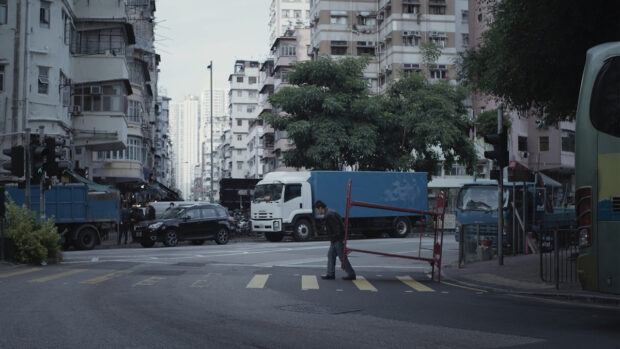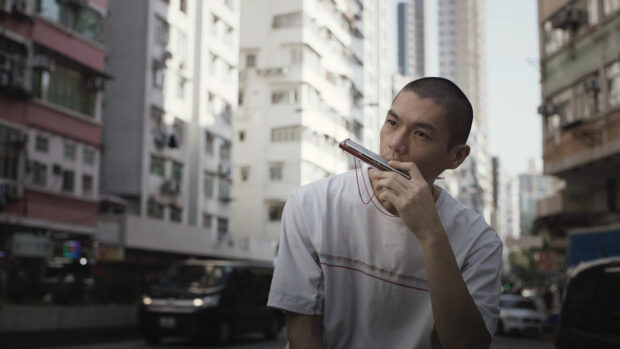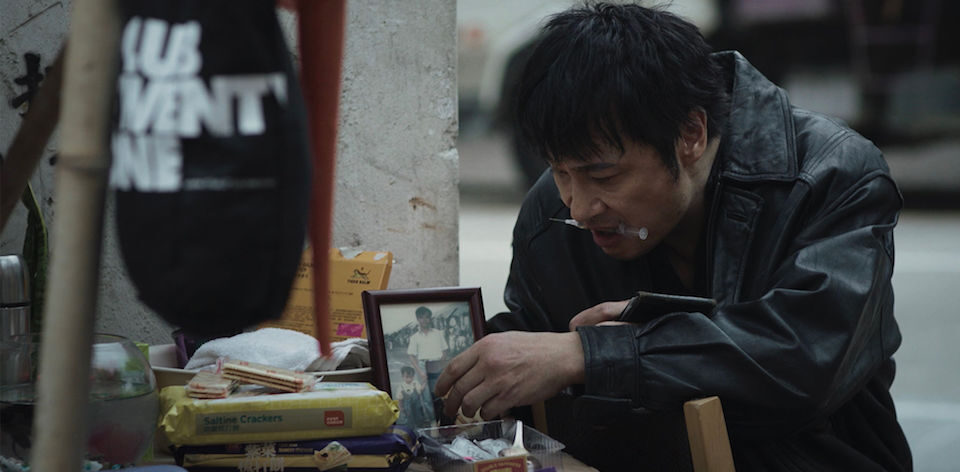Even the most casual viewer of Hong Kong cinema can speak to the population issues. From Fruit Chan’s subsidised housing drama Made in Hong Kong (1997) to the more absurdist The Sinking City: A Capsule Odyssey (2017), how people live and work in the island city is as much a part of pop culture as any of the blockbusters.
Based on a series of real life incidents in 2012, it follows Fai (Francis Ng Chun-yu) upon his release from prison. With nowhere to go, he finds a welcoming street corner where other people living rough have set up. When the police move them along and discard their belongings and identification, social worker Ms. Ho starts a legal process to earn some compensation.
“How does this tiny island hold them all?” ponders one of the central characters. “What’s so good about Hong Kong?” This basic paradox of Hong Kong is at the core of DRIFTING (濁水漂流), writer/director Jun Li’s follow-up to his debut Tracey (2018), another issue-based film tackling transgender rights. For every Stanley, Repulse Bay, high rise or shopping centre is another side to the city that’s not often exposed.

For the most part, Li is less concerned with the legal battles than he is with the personal lives of the central characters. Like Chloé Zhao’s films (The Rider and more recently, Nomadland), Li wants to scratch beneath the surface of the people we walk by every day. ‘Big Eye’ Fai, for example, laments that the media is only interested in his prison past or drug addiction.
Once the case gains attention, a parade of people float through – overzealous second year architecture students, youth orientation camps, hairdressers – but it is all fleeting. A judge is sympathetic but pragmatic. Real social change doesn’t come about until homeless citizens are treated as people, and Li aims to show that we’re all potentially a turn or two away from this life.
Which is where the film really shines: as a character piece. Francis Ng, the award-winning star of The Mission and more recently Line Walker 2: Invisible Spy, is a powerful anchor. There’s great turns from Chu Pak-Hong (My Prince Edward) and Tse Kwan-ho (Shock Wave 2) as well. There’s one heart-breaking scene in which a character connects with his son for the first time in decades via video call, and you just know that’s going to be the awards clip. Of course, a younger homeless man is developed much beyond his ability to play ‘Greensleeves’ on harmonica. Repeatedly.

It’s a handsome film as well, neatly showing the two Hong Kongs at their best and worst. On the one hand, the neatly assembled and small camps of homeless people are shot with dignity and warm light. Conversely, there’s some stunning shots of the city from a crane that show the contrasting Hong Kong. From this vantage, a pointed question is posed: “They build these expensive condos. Where can poor people live?”
At a time of great social upheaval and potential change in Hong Kong, Li’s film makes a persuasive case for remembering the most vulnerable citizens. While this particular case resolved almost a decade ago, for a matter of HK$2,000 (or about USD$260) per person, the problems depicted here are still very much a reality. So, while this film may not aim to solve the problems of the current decade, it might pave the way for some change.
2021 | Hong Kong | DIRECTOR: Jun Li | WRITER: David Verbeek | CAST: Francis Ng, Loletta Lee, Tse Kwan-ho, Chu Pak-hong, Cecilia Choi, Will Or| DISTRIBUTOR: mm2 Entertainment, International Film Festival Rotterdam | RUNNING TIME: 112 minutes | RELEASE DATE: 1-7 February 2021 (NL)






